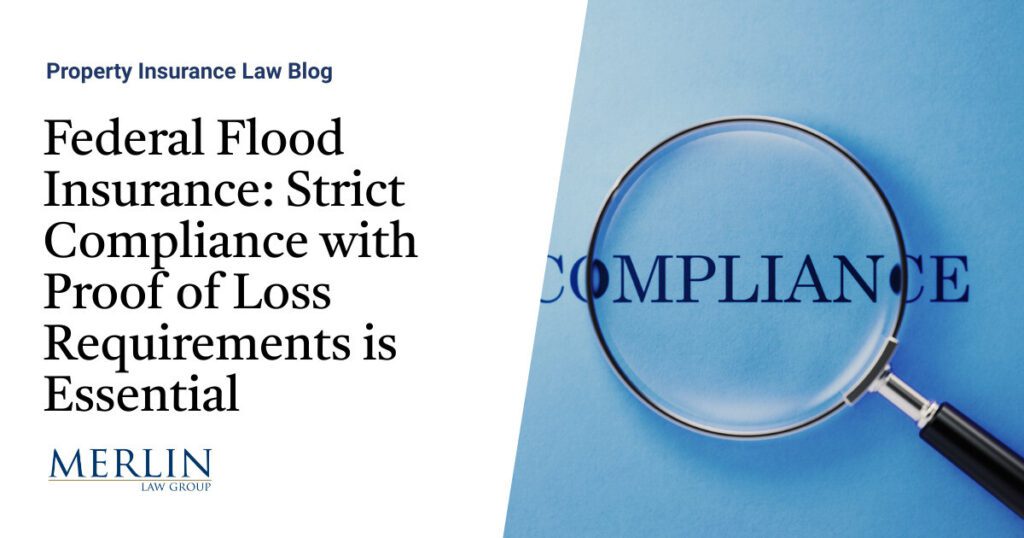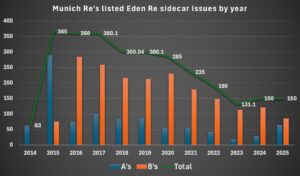Federal Flood Insurance: Strict Compliance with Proof of Loss Requirements is Essential

Public adjusters and policyholders must remain vigilant and precise when dealing with federal flood insurance claims under the National Flood Insurance Program (NFIP). A recent decision in Blocdahl Leasing, LLC v. American Strategic Insurance Corporation 1 highlights a crucial pitfall: Failure to submit a signed proof of loss can completely bar a claim for additional benefits.
This case arose from flood damage caused by Hurricane Ian. Despite receiving over $94,000 in payments based on the insurer’s adjuster reports, the plaintiff, Blocdahl Leasing, was dissatisfied and sought additional benefits exceeding the policy limits. However, the court granted summary judgment in favor of the flood insurer because Blocdahl Leasing failed to submit a signed proof of loss for the contested amounts.
Under the Standard Flood Insurance Policy (SFIP), submitting a signed and sworn proof of loss is not just a formality—it is a strict prerequisite to recover additional insurance benefits. While FEMA has issued bulletins allowing insurers to pay claims based on adjusters’ reports without a signed proof of loss, this leniency does not extend to contested claims. If a policyholder disagrees with the insurer’s adjuster report, they must submit a signed proof of loss along with supporting documentation. Without this, the claim will fail.
The court stated:
The proof of loss requirements must be strictly construed….‘[N]ot even the temptations of a hard case should cause courts to read the requirements of a federal insurance contract with ‘charitable laxity.’
The Blocdahl decision underscores two critical points. First, public adjusters should educate their clients on the importance of completing and signing proofs of loss accurately and on time. Even if the insurer appears willing to proceed without a signed proof of loss, policyholders must comply strictly with the SFIP requirements for contested claims. Second, all deadlines must be strictly observed. FEMA sometimes extends these deadlines, but this leniency does not eliminate the need for on-time signed documentation.
This case should serve as a wake-up call for policyholders and public adjusters with Hurricane Helene and Milton claims. Federal courts consistently emphasize the importance of adhering to the technical requirements of the SFIP. As the court in Blocdahl noted, federal flood insurance contracts are not subject to “charitable laxity.” A seemingly minor oversight, such as failing to sign a proof of loss, can result in a complete denial of additional benefits—even when the damages are substantial and well-documented.
Policyholders facing flood-related losses should work closely with knowledgeable public adjusters and legal counsel to ensure compliance with all NFIP requirements. Properly preparing, signing, and submitting proofs of loss within the prescribed timelines is not optional. It is a critical step in protecting your rights under a flood insurance policy.
For public adjusters, this case reaffirms the value of meticulous record-keeping, thorough client communication, and adherence to procedural requirements. Ensuring that your clients meet these exacting standards can make the difference between a successful recovery and a frustrating denial.
The federal flood proofs of loss for Hurricanes Helene and Milton have been extended to 180 days from those storms, as noted in National Flood Proofs of Loss for Hurricanes Helene and Milton Extended to 180 Days. For those with federal flood claims from Hurricanes Helene or Milton, I would suggest you also read Federal Flood Proofs of Loss Due on Friday and a Flood Case Showing How Unfair it Can Be to Fight National Flood in Court, and A Warning Regarding Federal Flood Proofs Of Loss.
Thought For The Day
“Discipline is the bridge between goals and accomplishment.”
—Jim Rohn
1 Blocdahl Leasing v. American Strategic Ins. Corp., No. 2:23-cv-776, 2024 WL 5202783 (M.D. Fla. Dec. 23, 2024).




